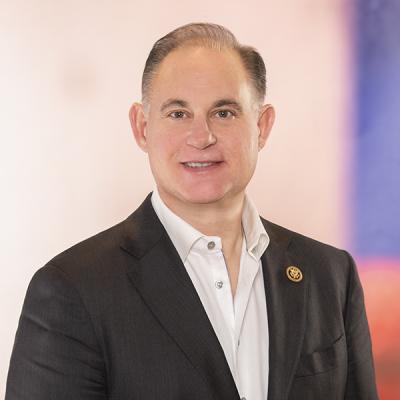2020 Congressional Highlights
As we begin a new year and the second session of the 116th Congress, ML Strategies is pleased to share some highlights of where we see action this year on Capitol Hill. Although the impending impeachment trial of President Trump will affect the congressional agenda at the outset of the year, we do see a number of opportunities for legislative action before the 2020 campaign season intervenes and takes members of congress away from Washington.
Appropriations: Before adjourning in December, the House and Senate approved, and President Trump signed into law, a year-end spending package that funds the federal government through the end of the current fiscal year on September 30, 2020. The House and Senate Appropriations Committees will almost immediately begin prepping their spending bills for the next fiscal year. President Trump will send his budget request for fiscal year 2021 to Congress on February 10 outlining his spending priorities for the coming fiscal year.
Energy: With Dan Brouillette sworn in as the 15th Secretary of Energy in December, we anticipate that he will continue the DOE’s agenda of “energy dominance” related to exporting natural gas and coal, but he has also expressed his support for expanding renewable energy like wind and solar, and for technologies such as battery storage and small modular nuclear reactors. On Capitol Hill, although the proposed Green New Deal has gained significant relevance and influence among Democrats, as well as on the campaign trail among nearly all Democratic presidential candidates, the likelihood of seeing the proposal enacted in 2020 is near to impossible with a Republican-controlled Senate and opposition from the White House. However, we expect that congressional Democrats, and their allies, will continue to make the clean energy and jobs goals of the proposal a central argument in their quest for victory in November. Before adjourning in December 2019, Congress passed and President Trump signed into law a year-end spending bill that included language to revive and extend a number of energy tax provisions. The original proposed tax extenders language would have extended the provisions through 2024, but the final enacted legislation extends most provisions through the end of 2020 and 2022. With the tax extenders package falling short of the original goal of extending provisions through 2024, it is possible that we will see another effort on tax extenders in the lame duck session of Congress following the November elections. The House Energy & Commerce Committee and Senate Energy & Natural Resources Committee have also advanced dozens of energy-related measures over the past year, with the Senate committee aiming for a bipartisan energy package before the end of the year. However, with divided partisan control of the House and Senate final passage of any such package could be difficult to achieve. Read more on tax extenders and other recent energy policy developments in our monthly Energy & Sustainability Washington Updates found here.
Health Care: A variety of health care provisions were incorporated into the end-of-2019 Further Consolidated Appropriations Act, 2020 (P.L. 116-94), which we covered here. Several high profile and high-impact issues remain unresolved, including drug pricing and surprise billing. We expect Senator Lamar Alexander (R-TN), the chair of the Senate Health, Education, Labor and Pensions (HELP) Committee, who is retiring at the end of this session, to be interested in leaving a final mark on the committee and the nation’s health care system. That could be through the Cures 2.0 effort, launched in the House by Reps. Diane DeGette (D-CO) and Fred Upton (R-MI) – the pair who championed the 21st Century Cures Act enacted in 2016 – and focused so far on improving reimbursement policy, or through a separate legislative vehicle. In either case, the timing may finally be right for many long-awaited reforms, particularly in the realm of FDA-regulated products. We anticipate discussion around legislation for reform of clinical lab test oversight, cosmetics oversight reform, OTC drug monograph reform, and medical device servicing. We are also tracking progress on the FDA user fee negotiations that will begin this year and judicial action related to the Affordable Care Act. For a more in-depth health care preview, read here.
Privacy: As 2020 gets underway, Congress will continue to deliberate on federal privacy legislation in the second session of the 116th Congress. In the Senate, the Chairman and Ranking Member of the Senate Commerce, Science, and Transportation Committee each released draft privacy bills in late November. Senator Roger Wicker (R-MS) released a staff draft of the Chairman’s version, the United States Consumer Data Privacy Act of 2019 (USCDPA) on November 27, a day after Ranking Member Maria Cantwell (D-WA), along with Senators Brian Schatz (D-HI), Amy Klobuchar (D-MN) and Edward Markey (D-MA) formally introduced their version, the Consumer Online Privacy Rights Act (COPRA).
The bills were the subject of a December 4 legislative hearing in front of the Commerce Committee titled “Examining Legislative Proposals to Protect Consumer Data Privacy.” Negotiations between Senators Wicker and Cantwell (and their staff) are reportedly ongoing, and both sides are still expressing hope for a bipartisan compromise. The House is taking a different approach to drafting a federal privacy bill. On December 18, Democratic and Republican staff for the House Energy & Commerce Committee released a bipartisan staff draft for circulation. The “staff” in “staff draft” is key – the document does not necessarily reflect the policy positions of Members, particularly committee Chairman Frank Pallone (D-NJ) and Ranking Member Greg Walden (R-OR). In addition, many key provisions in the staff draft are bracketed, indicating that staff has not reached agreement on those provisions, and they remain unresolved. Committee staff is seeking stakeholder comments on the staff draft, which will inform their ongoing, bipartisan negotiations. ML Strategies will be releasing an in-depth privacy preview in the coming days.
Transportation: The current surface transportation bill, the Fixing America’s Surface Transportation (FAST) Act of 2015, is set to expire on September 30, 2020. The work of reauthorizing the FAST Act is already underway, with the Senate Environment and Public Works (EPW) Committee unanimously approving their reauthorization bill, the America’s Transportation Infrastructure Act of 2019, last summer. According to the committee, the bill is the largest highway reauthorization legislation in history, authorizing $287 billion from the Highway Trust Fund over five years. The bill also includes funding for the Nationally Significant Freight and Highway Projects program, competitive grants for bridges, new safety incentive programs, the Tribal Transportation Program, the Federal Lands Transportation Program, a new resiliency program to protect roads and bridges from natural disasters, projects aimed at lowering highway-related carbon emissions, and competitive grants for alternative fuel infrastructure. The bill also reauthorizes the Diesel Emissions Reduction Act (DERA) program, which supports the reduction of emissions from diesel engines, and the Utilizing Significant Emissions with Innovative Technologies (USE IT) Act to support carbon capture, utilization, and sequestration research. Senate EPW is, of course, just one of several Senate committees with jurisdiction over surface transportation, with their charge being highways, bridges, and tunnels. The Banking Committee has responsibility for mass transit, the Commerce, Science and Transportation Committee covers rail and transportation policy, while the Finance Committee handles the trickiest part of all – funding. In the House of Representatives, jurisdiction is more clear-cut with the Ways and Means Committee handling funding, and the Transportation and Infrastructure Committee covering all other aspects, except automobile safety, which is under the jurisdiction of the Energy & Commerce Committee. Each of these committees will be working over the coming months to advance their policy and funding priorities for surface transportation.
Last week, the Department of Transportation (DOT) released the administration’s non-binding guidelines for regulation of autonomous vehicles – “Ensuring American Leadership in Automated Vehicle Technologies: Autonomous Vehicles 4.0”. These principles are DOT’s fourth set of guidance on driverless car development, aimed to construct a unified policy approach for the 38 federal agencies, commissions, and White House offices that have a role in dealing with the technology. Furthermore, staff for the House Energy & Commerce and Senate Commerce Committees are engaged in pre-conference negotiations on autonomous vehicle legislation. In so doing, last year staff circulated draft numerous provisions for stakeholder comment and will likely circulate additional draft provisions in the second half of the 116th Congress.
Trade: Today, President Trump is signing a phase-one trade agreement with China, which covers intellectual property, technology transfer, agriculture, financial services, and currency and foreign exchange. The agreement will almost certainly affect the Section 301 tariffs on Chinese products, potentially reducing by half to 7.5 percent the Section 301 List 4A tariffs. The administration suspended the List 4B tariffs, which were set to enter into effect on December 15, with the announcement of the phase-one agreement. Stakeholders engaged on Lists 1 through 4 of the Section 301 tariffs will continue their efforts to secure exclusions from USTR for specific products. As we have seen, trade policy can turn on a dime (or in some places on a tweet), so we anticipate that there will be continued developments with regard to US-China trade and tariffs over the coming months.
The House of Representatives approved the implementing legislation for the United States-Mexico-Canada Agreement (USMCA), the replacement of the North American Free Trade Agreement (NAFTA), on December 19, sending it to the Senate, which will likely approve the agreement by a wide bipartisan margin this week. Over the past several days, the agreement saw quick approval by the Senate Committees on Appropriations, Budget, Commerce, Environment and Public Works, Finance, Foreign Relations, and HELP. Senate Majority Leader McConnell (R-KY) has previously stated that the Senate would take up the USMCA following the impeachment trial. However, with House Speaker Pelosi (D-CA) naming the House managers for the trial and the full House scheduled to vote on sending the articles of impeachment to the Senate today, the Majority Leader has indicated that he would move to advance the trade agreement as one of the last measures taken up before the impeachment trial gets underway next week.





